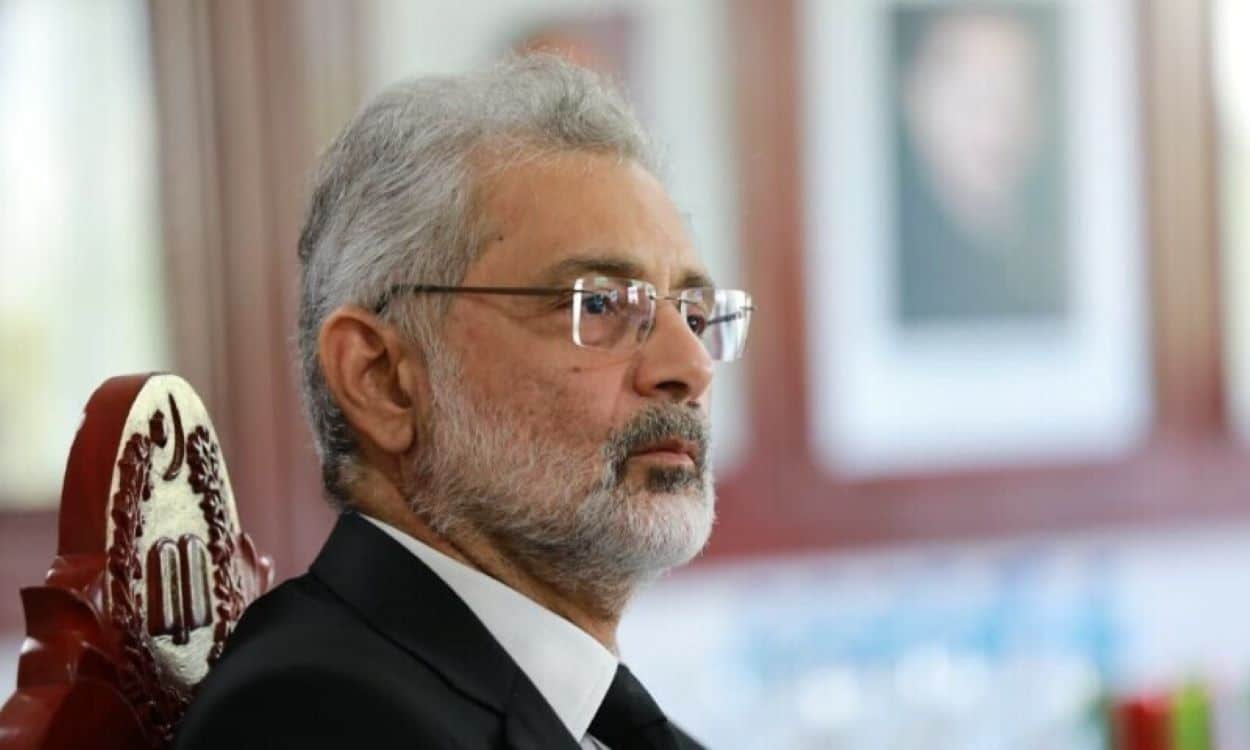Chief Justice of Pakistan Qazi Faez Isa observed that any attempt to direct the judiciary’s path could be seen as interference, as the Supreme Court resumed its hearing on the suo motu case concerning intelligence agencies’ meddling in judicial affairs on Monday.
The six-member bench led by CJP Isa, which includes Justices Syed Mansoor Ali Shah, Yahya Afridi, Jamal Khan Mandokhail, Athar Minallah, Musarrat Hilali, and Naeem Akhtar Afghan, is hearing this case with live broadcast proceedings.
Previously, the Supreme Court took suo motu notice following a letter from six Islamabad High Court (IHC) judges. They accused intelligence agencies of pressurizing judges through abductions, torture of relatives, and covert home surveillance.
The letter, directed to CJP Isa, Supreme Court Justices Mansoor Ali Shah and Munib Akhtar, and chief justices of the IHC and the Peshawar High Court, raised concerns about using state police to intimidate judges.
Dated March 25, the letter was signed by IHC Justices Mohsin Akhtar Kayani, Tariq Mehmood Jahangiri, Babar Sattar, Sardar Ejaz Ishaq Khan, Arbab Muhammad Tahir, and Saman Rafat Imtiaz.
Following an ineffective one-man commission initially set up by the government, a group of lawyers and civil society members appealed to the top court to take direct action under Article 184(3) of the Constitution, emphasizing public interest and fundamental rights enforcement.
Justice (retd) Tassaduq Hussain Jillani, initially appointed to head the commission, recused himself, stating that the inquiry might fall under the jurisdiction of the Supreme Judicial Council or the Supreme Court. He expressed gratitude for the trust placed in him but noted the inquiry’s terms were not directly relevant to the matter.
During today’s session, there was a brief debate on whether to convene a full court. CJP Isa clarified that a three-member committee had opted for a bench of all available judges, noting Justice Yahya Afridi’s recusal and the absence of two other judges for a full court.
CJP Isa underscored the judiciary’s divisive pressures, emphasizing the importance of maintaining judicial independence and resisting external influences.
Chief Justice Isa then queried Attorney General for Pakistan (AGP) Mansoor Awan if he was familiar with the recommendations made by the IHC judges. AGP Awan admitted he had not read them. Justice Minallah clarified that these were not mere suggestions but a “charge sheet.”
Upon CJP Isa’s direction, AGP Awan read the recommendations aloud in the courtroom.
The IHC judges praised the apex court’s responsiveness in taking suo motu notice. Their recommendations advocated for a clear separation of powers between the executive and intelligence agencies and refuted any judicial divisions, urging media correction on this misrepresentation.
They also recommended amending the judges’ code of conduct, banning meetings between judges and intelligence agency members, immediately reporting any interference, and establishing a permanent complaint cell within the Supreme and High Courts for prompt legal action on such complaints.






